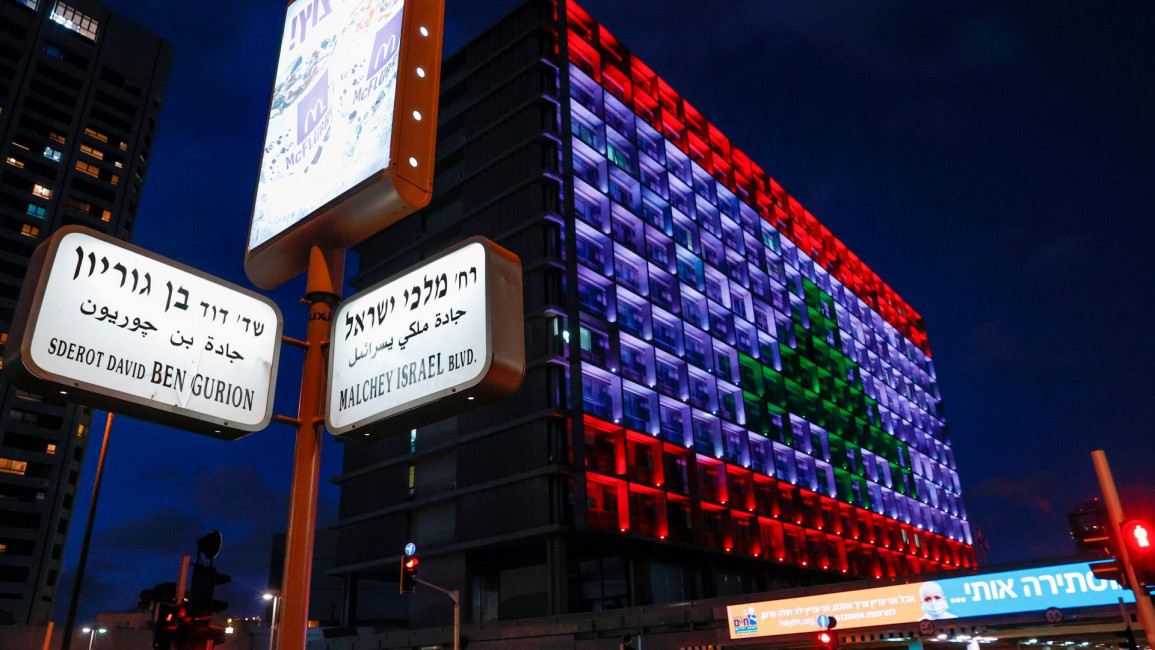Israel's Lebanon aid offer unlikely to find a taker
The two neighbours are still technically at war, have no diplomatic ties and mutual suspicion, even animosity, defines their relations.
As Beirut reeled Tuesday after the monster blast at the port ripped across the city, many eyes were on Israel.
The military initially offered a traditional "no comment" to queries about the possible source of the explosion, until later a government source added: "Israel has nothing to do with this incident".
Hours later the government offered humanitarian aid to Lebanon.
"Israel has turned to Lebanon through international security and political contacts to offer humanitarian and medical aid to the Lebanese government," a statement said.
As Beirut hospitals became overwhelmed by the influx of thousands of injured, Lebanon's government did not comment.
Twitter Post
|
Aid has been streaming in from elsewhere, including from former power France and Iran, an ally of Lebanon's powerful Hezbollah movement and key Israeli rival.
Israel and Hezbollah last fought a 33-day war in the summer of 2006 that devastated parts of the Lebanese capital and killed hundreds.
Government and diplomatic sources in Jerusalem say Israel has tried unsuccessfully since Tuesday to send medical equipment to Lebanon via the United Nations, which monitors a buffer zone between the two countries.
Israel even sought to dispatch medical personnel to Cyprus, where Beirut victims could be treated, according to the sources.
"It is a very human gesture," Amos Yadlin, former head of Israeli military intelligence, told reporters. "It is a gesture that can bring the two nations together.
Bitter war memories
Yadlin blamed Hezbollah's backers in Tehran for the continuing air of hostility between Israel and Lebanon, insisting there was "no real dispute" between the neighbours.
"The only reason that there is no peace between Israel and Lebanon is the fact that Iran took over this small country through its proxy Hezbollah and they are inventing excuses to keep the conflict going," he claimed.
In Beirut, many have bitter memories of Israel's invasion of Lebanon in 1982, its occupation of the country's south until 2000 and the 2006 war that killed 1,200 people, most of them civilians.
The fate of hundreds of thousands of Palestinian refugees stuck in Lebanon for decades after fleeing or being driven out of their homes in waves following Israel's creation in 1948 is another thorny issue.
Longstanding demands for their return has remained a sticking point.
Traumatised by the blast that devastated their capital killing more than 150 people, injuring at least 5,000 and leaving some 300,000 homeless, the Lebanese paid little attention to Israel's offer, other than to ridicule it.
"Israel should stop exploiting this catastrophe to whitewash its crimes against Lebanon," one tweeted in English.
'Humanity before conflict'
Tension between the two countries spiked after Israel fired artillery across the border last month in what it said was a response to a Hezbollah incursion into its territory.
Twitter Post
|
"Israel has fought terrorism from Lebanon for decades, but we have nothing against the Lebanese people," said Israeli businessman Erel Margalit.
He said he asked French President Emmanuel Macron to reiterate the Israeli offer during his snap visit to Beirut on Thursday to discuss an aid plan.
With Lebanon facing its worst economic crisis since the 1975-1990 civil war, Israeli officials have backed an international aid plan for Beirut conditional on changes that diminish Hezbollah's influence.
While Israel's offer of aid failed to win approval in Beirut, a rare gesture by Tel Aviv to light up its city hall in the colours of the Lebanese flag was also not applauded by many in Israel where some consider that Lebanon, not just Hezbollah, is the enemy.
"It is possible and necessary to provide humanitarian aid to civilians who were hurt in Lebanon, but waving an enemy flag in the heart of Tel Aviv is moral confusion," tweeted Raffi Peretz, minister for Jerusalem affairs and member of the far-right Jewish Home party.
Prime Minister Benjamin Netanyahu's son Yair, whose far-right-supporting social media posts regularly court controversy, went further.
"It is insane. Lebanon is formally an enemy country and it is a crime to fly the enemy flag," he commented.
Tel Aviv Mayor Ron Huldai defended his initiative.
"Humanity comes before any conflict and our hearts are with the Lebanese people following the terrible disaster that struck them," he tweeted.
Veteran commentator Gideon Levy, of the left-wing Haaretz daily, said given Israel's history in Lebanon such sentiment was a "sickening show of hypocrisy".
Follow us on Facebook, Twitter and Instagram to stay connected



